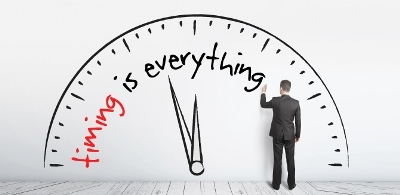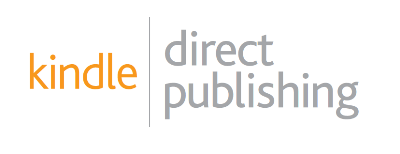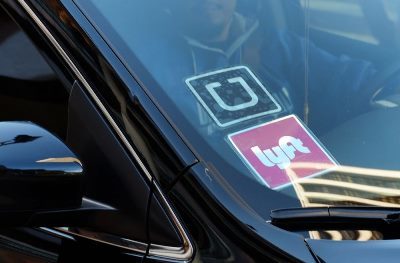Jeremie Averous's Blog, page 52
October 30, 2018
How Skim Reading Changes our Ways of Thinking
Skim reading is the new normal. We scroll down on content and often do not take the time to read in detail what is written. Even worse, we often just don’t read at all! (see my post ‘How Most People Sharing Links or Commenting Don’t Read the Posts‘). In this excellent Guardian piece, ‘Skim reading is the new normal. The effect on society is profound‘, the issue is analysed further. The author concludes that we need a new literacy for the digital age.
 The point developed in this paper is that a specific learned capability of humans is getting deeply modified. As a result, “the result is that less attention and time will be allocated to slower, time-demanding deep reading processes, like inference, critical analysis and empathy, all of which are indispensable to learning at any age“.
The point developed in this paper is that a specific learned capability of humans is getting deeply modified. As a result, “the result is that less attention and time will be allocated to slower, time-demanding deep reading processes, like inference, critical analysis and empathy, all of which are indispensable to learning at any age“.
A specific focus in the article is about our diminishing empathy: “The subtle atrophy of critical analysis and empathy affects us all. It affects our ability to navigate a constant bombardment of information. It incentivizes a retreat to the most familiar silos of unchecked information, which require and receive no analysis, leaving us susceptible to false information and demagoguery.”
One interesting aspect is that it seems that reading on screen (even on a Kindle) compared to physically handling a book creates less attention and more skimming.
Anyway, for sure the younger generations are learning differently from older generations and might not develop exactly the same approaches. I am not sure if that’s good or bad, but it will certainly be different. Exciting times!

October 27, 2018
What Makes an Expert Really Different
We hear so much about expertise these days, that it becomes important to remind ourselves what features distinguish an expert from someone simply experienced in a field. In short: an expert is not only very experienced, but he/she must be able to:
transmit knowledge
change the policies and the rules.
And this is a very operational criterion used by many organisations to define the expert level in a trade.
 The ability to transmit knowledge is essential, as it demonstrates reflection and full understanding of the material. In addition, transmitting knowledge is an excellent way to deepen one’s knowledge, so this is clearly a self-accelerating competency.
The ability to transmit knowledge is essential, as it demonstrates reflection and full understanding of the material. In addition, transmitting knowledge is an excellent way to deepen one’s knowledge, so this is clearly a self-accelerating competency.
The ability to change policies and rules is another feature of being able to transmit knowledge, albeit this time in a more institutional setting. It demonstrates the ability to stand for one’s knowledge, work out the internal politics and convince the organisation to change based on knowledge.
Of course, the issue of expertise in a complex world is that it is mainly based on consideration of the past, however I find this definition of what makes an expert special quite useful and operational. Are your experts really ‘experts’?

October 25, 2018
How Dramatic The Effect of Our Daily Physiological Rhythm Is
Following our previous post ‘How We Can Choose The Best Timing for Certain Activities‘ and the excellent book by Daniel Pink ‘When: The Scientific Secrets of Perfect Timing‘, one of the issues which come out is the dramatic influence of our daily rhythm on our activities.
 In particular, Daniel Pink exposes several dramatic examples of poor decision-making in the afternoon. And that many cognitive tasks should better be done in the morning. “Afternoons are the Bermuda Triangles of our days . Across many domains , the trough represents a danger zone for productivity , ethics , and health.”
In particular, Daniel Pink exposes several dramatic examples of poor decision-making in the afternoon. And that many cognitive tasks should better be done in the morning. “Afternoons are the Bermuda Triangles of our days . Across many domains , the trough represents a danger zone for productivity , ethics , and health.”
“In short , all of us experience the day in three stages — a peak , a trough , and a rebound . And about three – quarters of us ( larks and third birds ) experience it in that order . But about one in four people , those whose genes or age make them night owls , experience the day in something closer to the reverse order — recovery, trough, peak .”
Of course I was aware of the effect of our circadian rhythm, but what struck me is how significant that can be: “these daily fluctuations are more extreme than we realize . The performance change between the daily high point and the daily low point can be equivalent to the effect on performance of drinking the legal limit of alcohol“. Food for thought!

October 23, 2018
How We Can Choose The Best Timing for Certain Activities
In the excellent book ‘When: The Scientific Secrets of Perfect Timing‘, Daniel Pink investigates the importance of Timing in what happens in our lives.
 The take of the book is that “Timing , we believe , is an art. I will show that timing is really a science — an emerging body of multifaceted , multidisciplinary research that offers fresh insights into the human condition and useful guidance on working smarter and living better.”
The take of the book is that “Timing , we believe , is an art. I will show that timing is really a science — an emerging body of multifaceted , multidisciplinary research that offers fresh insights into the human condition and useful guidance on working smarter and living better.”
The book covers timing issues at different time scales: day, week, month, year and even decades. It shows that certain timing issues can be predicted, linked to our physiology. Some others can be predicted thanks to our psychology (for example, “Negotiators with a deadline are far more likely to reach an agreement than those without a deadline — and that agreement comes disproportionately at the very end of the allotted time“.
I was a bit frustrated by the fact that the role of luck in timing was not sufficiently developed when it comes to the timing of single events of major importance in our lives. However the guidance given on the part of timing we can control – when best to take decisions, learn, be creative makes it a worthwhile read.

October 20, 2018
How An Appeal Process Should be Guaranteed When Your Account Gets Cancelled by a Major Internet Player
Monopolistic services such as Facebook, Amazon, Google have to strike a fine balance between fighting abusive usage of their services (of which there is a lot), and providing the opportunity to access them to all. Recently a few papers about Amazon switching off the account of some authors publishing on the platform have raise the issue in this particular remit: ‘Amazon self-published authors: Our books were banned for no reason‘ – and I am particularly sensitive to that particular area, being active in publishing.
 The capability offered by Amazon to self-publish is an amazing opportunity for would-be authors. It is possible to publish without going through the selection criteria of publishers, do it electronically only and not have to bother about hardcopies. Some self-publishing authors have become professional, deriving significant income from their books. It has created vocations and allowed many people to write and publish that would not have otherwise.
The capability offered by Amazon to self-publish is an amazing opportunity for would-be authors. It is possible to publish without going through the selection criteria of publishers, do it electronically only and not have to bother about hardcopies. Some self-publishing authors have become professional, deriving significant income from their books. It has created vocations and allowed many people to write and publish that would not have otherwise.
As with any system there are ways to abuse it – part of the compensation provided by Amazon is based on the number of pages read by readers of the e-book. There are ways to inflate this number. And Amazon will ban abusers… and maybe some that do not intend, or do not abuse the system, but have a usage pattern that is too close.
The issue here is not that Amazon or the likes cancels the account of abusing users – they should do it – but that if you have not abused the system there are no clear ways to appeal. It is very difficult to reach the client support service. It is the same for other services as Facebook, etc.
This situation is quite similar to being condemned without having had a fair hearing. Dominating internet services should be mandated to set up appeal processes where users can raise their issue, if needed publicly, so that they can receive due consideration. The availability appeal process should be mandatory and this right protected by law.

October 18, 2018
How Changes from New Technology Will Lead to Unexpected Results
In this interesting article ‘Uber and Lyft Are Overwhelming Urban Streets, and Cities Need to Act Fast‘, unexpected consequences of new technology (more streets getting more car traffic) are discussed with recommendation for a single solution: more regulation.
 For sure, apps like Uber, Lyft or even apps calculating less jammed drives such as Waze or the likes necessarily change the pattern of road utilisation (Waze for example typically increases the usage of smaller, previously underutilised streets). It thus creates change and possibly at a massive level.
For sure, apps like Uber, Lyft or even apps calculating less jammed drives such as Waze or the likes necessarily change the pattern of road utilisation (Waze for example typically increases the usage of smaller, previously underutilised streets). It thus creates change and possibly at a massive level.
The new apps and services do respond to a need, which normally should decrease individual automobile utilisation; but is also creates new usage for better and more comfortable transit than public transportation on a point-to-point basis.
The interesting lesson here is that when one would think that those new services would rather decrease congestion, the actuel effect, due to the complexity of the situation, is observed to be rather the opposite. Therefore, one should not attempt to forecast what a new service will do when it scales.
Also, expecting regulation to provide a solution may be a way to go, but it needs to be considered with care, because the impact of a regulation might be equally unpredictable and the outcome may not be as expected. Welcome to a complex world!

October 16, 2018
How the Happiness Industry Influences Our Lives
“Being happy” is at the same time a wish and a mantra for most, and somewhat of an injunction in the current society. And the happiness, self-help domain has become a major industry with much presence in our lives. In the new book ‘Happycratie – How the Happiness Industry Has Taken Control Of Our Lives’ (in French) authors Eva Illouz and Edgar Cabanas denounce an industry with an excessive influence.
 I find the take of the book probably a bit excessive – comparing the happiness industry to some sort of totalitarian organisation, a way to create power – however it does provoke the question of the influence of this industry in our lives.
I find the take of the book probably a bit excessive – comparing the happiness industry to some sort of totalitarian organisation, a way to create power – however it does provoke the question of the influence of this industry in our lives.
It is quite clear that it is an industry – one needs only to browse through the relevant alleys in bookshops and consider the amounts of proposed activities around the general topic of happiness.
The point of the authors is that happiness has changed from a transgressive request in the 18th and 19th century to something that is now borne by the state and organisations. Everyone is claiming for happiness, and at some stage the social compact seems to change to the state providing happiness against social rest.
There certainly should not be any tyranny of happiness. Still, seeking happiness is certainly a quest that many of us follow because it does help us. Therefore, we need to take happiness as a personal goal while being careful to avoid any coercion associated with it.
Extracts in French are available in this ‘The Conversation’ post ‘Sois Heureux et Tais Toi‘.

October 13, 2018
How to Deal with Psychology’s Experiments Replication Crisis
Increasingly, studies find that seminal experiments in psychology can’t be replicated. A good summary is available in the Vox post ‘The Stanford Prison Experiment was massively influential. We just learned it was a fraud‘. The title is perhaps a bit exaggerated, as the text describes merely that probably the conclusions were provided in a too extreme manner but may not be entirely wrong, still these facts do come out as generations of lead psychologists change.
 The issue of experiment replication arises in many scientific fields, and it is easy to understand why that may be even more acute in psychology where it is harder to control all parameters, starting with the recruitment of the people who do participate to the experiment (generally university undergraduates, which by itself is quite a skewed representation of society).
The issue of experiment replication arises in many scientific fields, and it is easy to understand why that may be even more acute in psychology where it is harder to control all parameters, starting with the recruitment of the people who do participate to the experiment (generally university undergraduates, which by itself is quite a skewed representation of society).
Of course, this poses questions about what we may have assumed to be scientific fact in the last decades in that field. And of course, textbooks and popular ‘self help’ books will carry on for a long time those inaccurate results and conclusions. This process has always happened through history. Psychology is an area where lots of wrong assumptions have been made with inadequate treatment given throughout the 19th and 20th century to patients. Still, we should take those results as thought provoking and decide whether we want to be influenced by them. It is probable that further study will find that the directions given by previous findings were right, even if the amplitude of the effect might have been exaggerated.

October 11, 2018
How Life Is a Lot More Like Poker Than Like Chess
Following from previous posts ‘How Most of Our Decisions Are Bets‘ and ‘How We Constantly Underestimate the Role of Luck in Our Lives‘ I have received some reactions about the fact I was exaggerating wildly the role of luck in life.
Our education, vocabulary and most of the messages conveyed by role models would tend to demonstrate that success comes from hard work and commitment; and that success is deserved through an entitlement created by effort, rather than coming from luck – a terrible thought!
 In her excellent book ‘Thinking in Bets: Making Smarter Decisions When You Don’t Have All the Facts‘ Annie Duke makes a great comparison: life is much more like poker than chess. In chess, there is no unpredictability; rules are set, and it is only a competition between minds. In poker, there is luck, psychology and unpredictability.
In her excellent book ‘Thinking in Bets: Making Smarter Decisions When You Don’t Have All the Facts‘ Annie Duke makes a great comparison: life is much more like poker than chess. In chess, there is no unpredictability; rules are set, and it is only a competition between minds. In poker, there is luck, psychology and unpredictability.
Of course, hard work and dedication does help. I am not saying that it is not important. But believing that one is entitled to success because of hard work and dedication goes one step too far.
The more I think about it, the more I believe that the belief in success being owed to hard work, and that hard work entitles to success, is a society-stabilisation message conveyed through the previous ages.
A lot of what happens in our lives is down to luck. The bigger our decisions, the more they are bets in uncertainty. We need to concentrate on being more lucky, know how to catch opportunities, rather than believing that keeping our head down and working hard will be the only solution.

October 9, 2018
How Colleges in the US Turn to Randomness for Assigning Roommates
To run contrary to an annoying trend in US colleges with students turning to like-minded students and shunning anything that might them feel uneasy (refer for example to our post ‘How Overprotecting from Different Points of View is a Moral Hazard‘), some colleges have turned to assigning roommates randomly to favour encounters and diversity. The title of this Quartz post says it all: ‘The life-changing benefits of living with a random roommate in college‘.
 Increasingly students were choosing their roommate prior to year start through social networks. To curb this approach which united like-minded students, “at Duke, the roommate-selection process is back to being entirely governed by the university. Roommate pairings are made largely at random, while taking into account some lifestyle preferences or needs, like sleep patterns, disabilities, or medical conditions.”
Increasingly students were choosing their roommate prior to year start through social networks. To curb this approach which united like-minded students, “at Duke, the roommate-selection process is back to being entirely governed by the university. Roommate pairings are made largely at random, while taking into account some lifestyle preferences or needs, like sleep patterns, disabilities, or medical conditions.”
The paper mentions a vast array of studies showing the decisive influence of the roommate – for better or for worse. “If college roommates can worsen your bad habits but also open your horizons, it’s no wonder that colleges have a stake in making sure that the experience benefits people as much as possible. And there’s a special authenticity that can only come from randomness; from the beauty of two complete strangers sharing the roller-coaster ride that is freshman year of college, for better or for worse.”
I find that this way of adding an element of randomness in the lives of student is quite a worthwhile experiment. It might not please students or parents – but certainly will create life-changing experiences.




